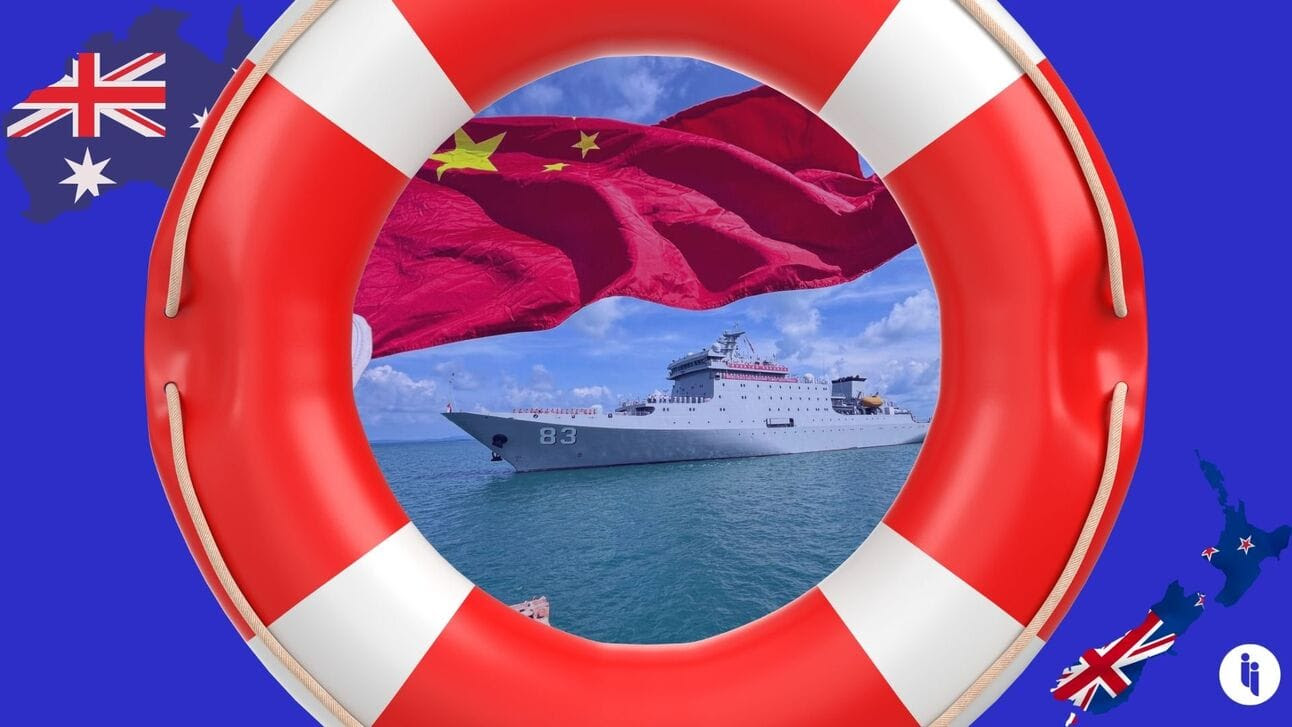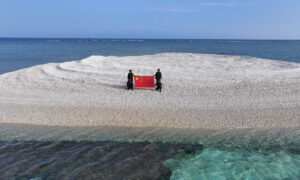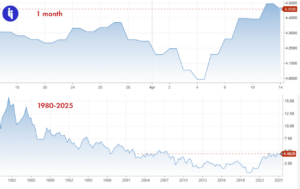China has just wrapped up two live-fire naval exercises in the Tasman Sea between two US allies: Australia and New Zealand.
And everyone’s been quick to point out that these drills broke no international law. So then… who cares?
There’ve been a few factors that really make these exercises intriguing.
Stay on top of your world from inside your inbox.
Subscribe for free today and receive way much more insights.
Trusted by 127,000+ subscribers
No spam. No noise. Unsubscribe any time.
First, their location in waters off Sydney and then off Tasmania. That’s the farthest south one of China’s naval task groups has ever reached in the region.
Second, their timing: these warships first appeared off Australia’s eastern coast just as the head of US Indo-Pacific Command (Admiral Samuel Paparo) was in Sydney last week, echoing China’s history of tapping the sign when US forces or officials visit allies in the region. Plus, China’s warships reportedly only gave the slimmest of heads-ups before…
Third, their actions: these warships then suddenly performed live-fire drills — ie, firing real ammunition. And they did so just a couple of hours after issuing warnings not to Canberra or Wellington, but to commercial airliners directly, who suddenly had to scramble to reroute their flights.
But again, what’s the problem here?
Legally speaking, there isn’t one according to the United Nations Convention on the Law of the Sea (UNCLOS). And interestingly, while these warships were initially steaming within Australia’s 200-nautical-mile exclusive economic zone (EEZ), they exited before opening fire (though many states note UNCLOS doesn’t expressly ban EEZ drills either).
So one last time, all together now… what’s the problem here?
It’s less a problem, and more the message in China’s deployment, which was designed to:
- Demonstrate its willingness and ability to project deep into the South Pacific
- Normalise its military presence throughout the region
- Thereby nudge US allies to keep their own navies home rather than near China
- Test (and cry hypocrisy on) any resulting Australian and Kiwi protests, and
- Test any US response to such a clear flex right near two long-time US allies, particularly as the US reiterates that China (not Russia) is now its top priority.
So how has the US responded? At least in public, there’s been silence. That might be because, as everyone keeps furiously agreeing, there’s been no breach of international law here, so protesting this could undermine the basis for US patrols near China.
And so… how have the Aussies and Kiwis responded? Officially, they’ve just said they would’ve welcomed more of a heads-up to help avoid any aviation disaster. And that’s against the backdrop of earlier complaints around the safety and professionalism of China’s military, raising the risk of a mistake, miscalculation, or worse.
But otherwise, the two antipodean neighbours have also just:
- a) monitored China’s warships
- b) issued carefully worded statements about how they respect “the rights of all states to exercise freedom of navigation and overflight in accordance with international law, just as we expect others to respect Australia’s”
- c) raised their safety concerns with China at the ministerial level, and
- d) cited the incident as evidence the Kiwis need to up their military spending.
But that was still enough for China’s military spokesperson to accuse them both of “hyping up” this whole story.
INTRIGUE’S TAKE
Casual observers might reflect on the above and think this is just reciprocity at play, right? If you want to steam through China’s ‘hood, don’t complain when China steams back through yours. And sure, that’s partly why the Aussies and Kiwis have been cautious in choosing their words this week.
But there’s a crucial difference here: unlike China, neither Australia nor New Zealand have drawn a vast ‘nine-dash line’ out into the ocean and declared everything within it as their own (ignoring a ruling that random lines on a map have no legal basis).
So that’s why, when the Australians and Kiwis steam through China’s nine dash line covering 90% of the South China Sea, they’re doing so in support of the same international law that they and every other small and medium nation still depend on.
Also worth noting:
- Unlike China and ~169 others, the US isn’t a party to UNCLOS, mostly due to a long-running assessment that the treaty wouldn’t pass the US senate. But every administration since Reagan has treated UNCLOS as customary international law (ie, a law so fundamental and common, it applies regardless).
- Earlier this month, China claimed an Australian military aircraft “deliberately intruded into China’s territorial airspace of Xisha Qundao without China’s permission.” Xisha Qundao is China’s name for the Paracel Islands in the South China Sea.
- Australia’s defence ministry just released further images of China’s warships, which have now re-entered Australia’s EEZ towards Tasmania.









